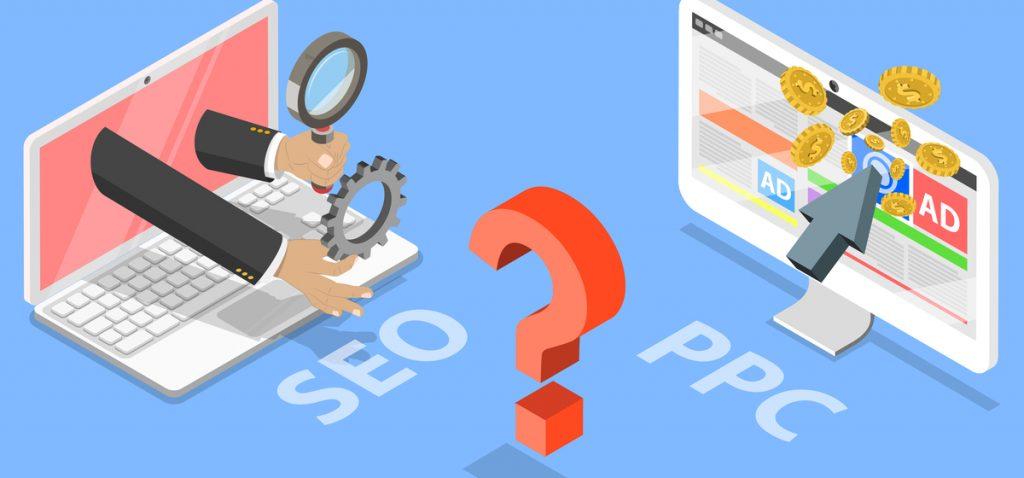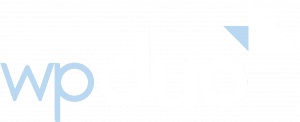
SEO vs PPC: Where Should You Start?
The world of digital marketing is full of confusing acronyms: SEM, CPM, KPI, CTR… I could go on.
In this post, we’re going to be looking at two of them in particular as we compare SEO vs PPC.
Both are two sides of the same coin. SEO (search engine optimization) is the practice of driving organic traffic to your website by optimizing your content to rank on the search engine results pages. PPC (pay-per-click) involves paying for that same traffic via paid ad placements instead.
The question is, which is better?
Let’s find out.
Is SEO or PPC better?
The short answer here is…it depends.
It all depends on your industry, marketing objectives, available budget, and how long you’re willing to wait to see results.
The main difference between SEO and PPC is that PPC is a paid advertising method whereas traffic from SEO is free.
With PPC, a platform (like Google) lists your ad in a visible space (i.e. the top of the SERPs) and you pay cold-hard-cash each time someone clicks it.
With SEO, you have to put in more time and effort initially to get your content to rank organically on those same platforms, but once it’s ranking, the clicks will come in on their own – you don’t have to pay a dime.
If you’re a cash-strapped start-up with little money to spend on advertising but a whole lot of time to put into creating great content, and you’re in it for the long-game, SEO is likely going to be the way to go. It delivers more volume over the long-term and offers a better cost-per-lead than PPC.
On the other hand, if you’re a big business with a big budget that’s looking for instant results, or you’re a small e-commerce store competing with big players that you don’t stand a chance of outranking in organic search, PPC may be the way forward.
For most businesses, though, a strategic approach that includes both PPC and SEO will work best. There are lots of reasons you might want to integrate both into your marketing strategy, including:
- You can remarket to visitors you reach through organic search listings via paid ads
- You can use PPC to test your keyword strategy and analyze results before committing to long-term SEO efforts.
- Keyword/conversion data from PPC can be fed into your SEO campaign
Pros and Cons of SEO & PPC

Alright, now let’s dig a little deeper and take a closer look at the different pros and cons of SEO and PPC.
SEO Pros
I’m a glass-half-full kind of guy, so let’s start with the benefits. Here are some of the main pros of SEO:
- Long-lasting visibility. Unlike PPC, organic traffic doesn’t stop when you stop paying. SEO allows you to earn long-lasting visibility in the SERPs
- Boost credibility & trust. Users these days are skeptical of ads. Many of your customers will skip over them entirely and go straight to the organic results. By positioning your content in the organic results, you’ll command more credibility and trust.
- Higher CTR. Linking into the above point about trust, a higher percentage of search users click on organic results than paid results. You’re more likely to see a higher click-through rate on organic listings than PPC ads.
- Better ROI. SEO offers an improved return on investment compared to PPC and other traditional forms of paid media advertising.
- Low-cost (potentially). With SEO, you don’t have to pay for clicks. The only costs involved are the initial costs of creating the content and getting it to rank by boosting your authority (think backlink building).
SEO Cons
Alright, now the less-positive stuff. Unfortunately, it’s not all sunshine and rainbows. SEO isn’t without its disadvantages. Here are some of the main cons:
- High initial time investment. Getting your content to rank in the search means putting in a lot of initial work. Your team will need to spend time finding the right keywords, building domain authority, developing strong content assets, and making sure your content is well-optimized to give it the best chance of ranking.
- New websites are disadvantaged. One of Google’s most important ranking criteria is domain authority (DA). Larger, well-established competitors that have already built a presence in the space will find it easier to outrank you as they will likely have a higher DA and more ‘ranking power’.
- Can be expensive. While SEO can be low-cost, it can also be expensive if you don’t have the in-house resources you need to tackle content creation yourself. The costs of outsourcing your strategy, content writing, and outreach/link-building efforts quickly add up.
- Less ready-to-buy traffic. Many of the search terms you’ll stand a chance of ranking for will be informational or pre-purchase queries. This means you’ll need to have a strategy in place to nurture that traffic before you can make a sale.
PPC Pros
Now let’s take a look at the pros and cons of PPC. Here are the main advantages:
- Instant results. Unlike SEO, which takes time and effort, PPC offers more or less instant results. You just launch your ad campaign and you should start seeing traffic roll in immediately.
- Search position. One advantage of paid search listings is that they appear at the top of the SERPs (search engine results pages), above the organic listings, thus providing better visibility. Just note that this doesn’t necessarily equate to more clicks.
- Predictable costs. Unlike SEO, setting your budget for PPC is relatively straightforward. You can set a fixed limit for how much you’re willing to spend each day and keep tight control of your budget. There’s no scope creep to worry about.
- Laser-targeted. You can get really specific with your targeting when it comes to paid ads. Target customers by demographic data, device, keywords, time/date, and more. SEO is much less targeted.
- Agility. One great thing about PPC ad campaigns is that you can get them off the ground in a matter of days. If you need to get in front of your customers quickly (for example, to get immediate feedback on a new product launch), you can do that.
- Stability. Organic results change like the wind. Every time Google updates its algorithm, the rankings can shift dramatically. With paid search, you don’t have to be worried about suddenly being knocked off page one of the search results. You’re in a more stable position.
PPC Cons
And now the cons:
- Requires constant investment. PPC ads require you to constantly spend money. When you stop paying, the traffic stops. This means that if your marketing budget is tight one month and you have to cut down on your PPC spending, your traffic will drop. This isn’t a problem with SEO.
- Bidding wars can hike up the price. Your competition knows about Google Ads too. If they target the same keywords, a bidding war can ensue which quickly drives costs up.
What are your goals?
You’ll have to weigh the above pros and cons when deciding whether you want to focus on SEO or PPC.
The most important thing is to think about your goals first, and then decide which method is the best fit. Are you trying to establish your brand as a thought leader in your niche? Go for SEO. Are you looking to grab some quick feedback on a new product? Launch a PPC campaign.
Good luck!
 Start The Class
Start The Class

Comments are closed.